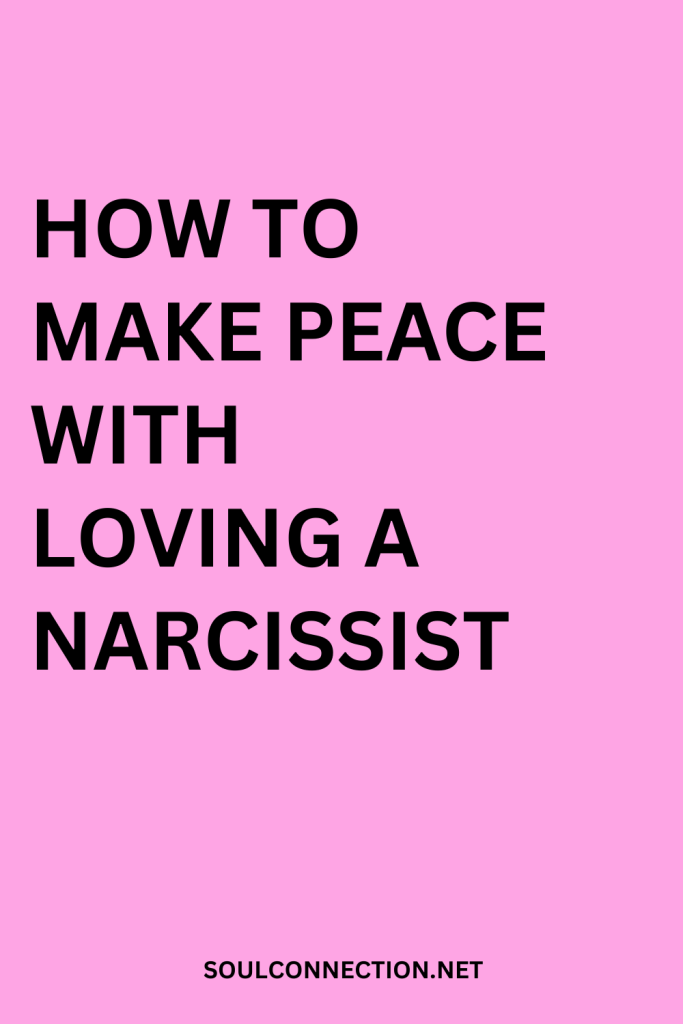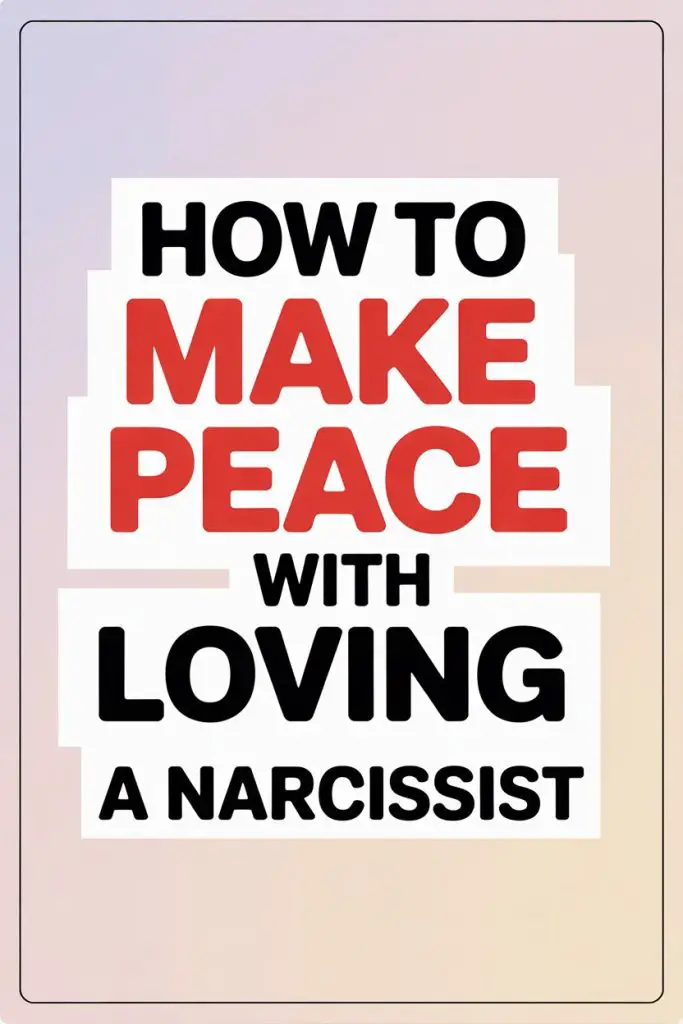There’s an old saying that love is blind, but nobody mentions that sometimes, love is also slightly masochistic. If you’ve found yourself hopelessly devoted to a narcissist, welcome to a club you never asked to join.
The good news? It’s not all doom, gloom, and endless selfies. In fact, there are ways to keep your sanity and even find some joy—without losing yourself entirely in the process.
Recognizing the Narcissist in the Room
Before anyone gets offended, let’s clear something up: narcissists aren’t evil masterminds twirling a mustache in the corner.
They’re just people—people who, yes, can make a conversation about your dead grandmother into a celebration of their own emotional growth.
They often lack empathy, need constant affirmation, and have the uncanny ability to turn your birthday into a weeklong tribute to their generosity for buying you socks.
Spotting these patterns is half the battle. Not because you’re preparing for war, but because living in denial is exhausting.
If your partner’s love feels conditional, if your needs tend to take a backseat to their latest triumph, or if apologies come with an asterisk and a PowerPoint presentation on why they’re actually the victim—congratulations, you’re dating a narcissist.
The Dance of Boundaries
Boundaries are like vegetables: everybody knows they’re good for you, and most of us would rather pretend they don’t exist. With a narcissist, boundaries aren’t just recommended; they’re necessary for survival.
It might sound dramatic, but putting clear limits around your time, energy, and emotional bandwidth is the only way to avoid being steamrolled.
Think of it as setting your phone to ‘Do Not Disturb’ mode—except your phone is your soul, and your notifications are endless requests to validate someone else’s awesomeness.
Set rules around how you communicate, how much you give, and when you need space. Enforcing these will feel uncomfortable at first.
Expect pushback, like a toddler denied their third helping of cake. Hold firm, and don’t apologize for needing to protect your own peace.
The Myth of Changing Them
If anyone has ever succeeded in genuinely changing a narcissist, they must also own a unicorn and have a direct line to Santa Claus. The urge to fix, heal, or finally say the magic sentence that triggers their empathy chip is understandable.
Spoiler alert: it’s not going to happen—at least, not because you willed it hard enough.
Real change, when it happens, takes years of therapy and more self-awareness than most narcissists are willing to muster. Your job isn’t to play therapist, life coach, and emotional support animal all rolled into one.
Love them, sure. But don’t trade your mental health for a never-ending self-improvement project that isn’t yours to finish.
Self-Care Isn’t Selfish
When you love a narcissist, self-care becomes an Olympic sport. It’s not just bubble baths and face masks (though those never hurt).
We’re talking about prioritizing your friendships, hobbies, and passions—anything that reminds you you’re a whole person, not a supporting actor in someone else’s movie.
Carve out non-negotiable alone time. Phone a mate who actually asks how you’re doing and listens to the answer. Practice saying no without feeling like you’ve committed high treason.
Your well-being deserves attention, no footnotes required.
Stop Feeding the Ego Monster
Compliments, adoration, endless patience: these are the snacks that keep a narcissist’s ego well-fed and turbocharged. While you can’t put your partner on a strict validation diet, you can opt out of being the main supplier.
Notice when you’re giving praise just to keep the peace, or when you’re overextending yourself to avoid a sulk-a-thon. Refuse to play the game where love is measured in gold stars and endless affirmation.
Your affection shouldn’t be conditional, and theirs shouldn’t be purchased with emotional currency. Hold back on the empty praise, dish out the authentic stuff, and see how that shifts the dynamic.
Empathy with Limits
Empathy is a beautiful thing—unless it turns you into a human doormat. With a narcissist, it’s easy to get sucked into their drama or pain, especially when they occasionally let their guard down and show a sliver of vulnerability.
Be compassionate, but don’t lose yourself. Offer support, but not at the expense of your own needs. It’s possible to be loving without becoming someone’s emotional life raft in a storm of their own making.
If you find yourself feeling guilty for having feelings or needs, it’s time to recalibrate.
Reframe Your Expectations
Hoping for heart-to-hearts, spontaneous acts of generosity, or romance straight out of a Nicholas Sparks novel? Time to recalibrate.
The love a narcissist gives is often filtered through their own needs and perceptions. That doesn’t mean it’s worthless—it just means you’ll have to accept it for what it is.
Try to appreciate the moments of genuine connection, however fleeting.
Celebrate the small stuff: the text message that arrives without a request attached, the rare apology, the unexpected act of kindness. And recognize what they may never be able to give, no matter how much you wish they could.
Communication: Say It Like You Mean It
With narcissists, communication can feel like playing tennis with someone who only returns the ball if it benefits them. Subtle hints, passive-aggressive sighs, or silent treatments will get you nowhere.
Be direct. Be specific. Keep it brief. State your needs, your feelings, and your boundaries without wrapping them in ten layers of apology. If you’re upset, say it.
If you need something, ask. Waiting for them to read your mind is like waiting for your cat to start doing your taxes.
Find Your Cheerleaders
Loving a narcissist can be lonely. Not because you’re alone—heaven knows they’re always around—but because your emotional needs are often left hanging.
Find your tribe. Friends, family, support groups, or even your favorite barista—anyone who sees you, hears you, and reminds you that you’re more than your relationship. You deserve validation and support that doesn’t come with a price tag.
Choose Your Battles
Every disagreement doesn’t have to become a feature-length drama. Pick the hills you’re willing to die on—preferably, not all of them. Some things won’t change, no matter how many impassioned speeches you give.
Decide which issues matter most. Some days, it’s worth standing your ground; others, it’s okay to let it go for the sake of your own sanity. Not every slight or oversight is a personal attack, and not every argument needs a winner.
When Enough is Enough
There comes a point when loving a narcissist stops being hard and starts being harmful. If you’re losing yourself, if the relationship is all take and no give, or if you feel unsafe—emotionally or physically—it’s time to consider your options.
Leaving isn’t failure. Sometimes the bravest thing you can do is walk away and reclaim your peace. If you need help, reach out. There’s no medal for staying in a relationship that breaks you.
Making Peace Isn’t Surrender
Learning to love a narcissist without losing your mind isn’t about giving up or settling for scraps. It’s about accepting reality, protecting your peace, and finding happiness that isn’t dependent on someone else’s approval.
Celebrate your strength, your resilience, and your ability to love—even when it’s complicated.
Making peace with loving a narcissist doesn’t mean loving less. It means loving yourself enough to deserve more.


